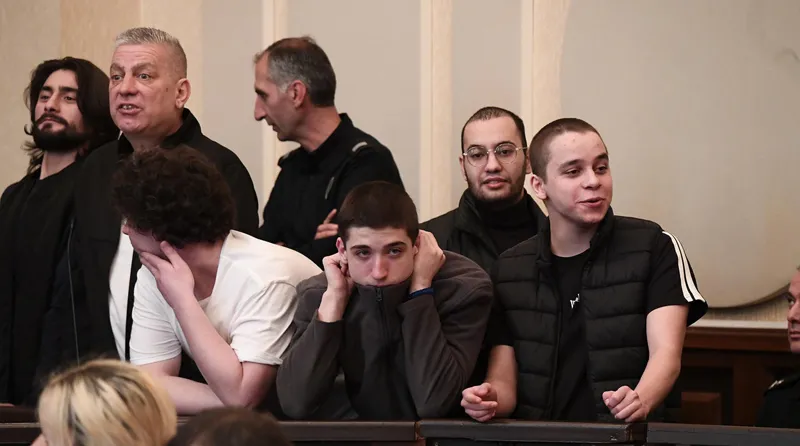
Zviad Tsetskhladze and 7 other people, who were arrested on charges of participating in and organizing group violence during the protests near the parliament, remain in custody.
The decision was made by Judge Tamar Mchedlishvili.
Today's hearing was supposed to examine the prosecution's evidence, however, Nikoloz Javakhishvili's lawyer Elguja Avsajanishvili attended the hearing remotely due to his health condition, which is why witnesses were not questioned. The court only reviewed the preventive measure of imprisonment.
According to Prosecutor Vazha Todua, the grounds for using detention against the detainees still existed. In particular, according to Todua, there are still threats of the accused absconding and committing new crimes, which is why detention should remain unchanged.
The lawyers disagreed with the prosecution's position. They requested that the detainees be released without detention, and as an alternative, they proposed that the court use bail, which they entrusted to the court to determine. Human rights activists suggested that the court impose various restrictive measures on the defendants, including the use of electronic monitoring.
Some of the defendants also took the opportunity to speak and told the court that there were no grounds for using detention as a preventive measure.
For information, three of the detainees - Zviad Tsetskhladze, Vepkhia Kasradze and Vasil Kadzelashvili - are accused of organizing and leading group violence. They face 6 to 9 years in prison.
Five other defendants - Giorgi Gorgadze, Irakli Miminoshvili, Insaf Aliyev, Tornike Goshadze and Nikoloz Javakhishvili - are accused of participating in gang violence. They face 4 to 6 years in prison.
v-if="article.gallery" v-html="article.gallery"
(adsbygoogle = window.adsbygoogle || []).push({});